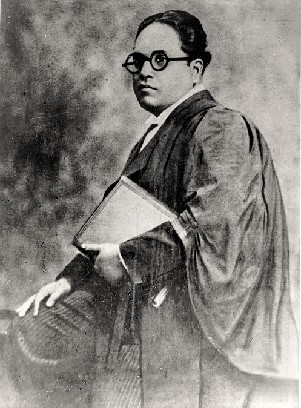By Sandeep Singh

Dealing with an eternal conflict, for what was the reason for my neglect to this insight earlier, was it our fast paced lives or sheer ignorance?
We witnessed each day the disparity of wealth and social status, dearth of basic needs and a mountain of situations borne not by us but a particular class in general, THE Depressed.
Their welfare scheme is a bait for votes, their upliftment an ironic joke.
All those big talks, debates and promises made upon doing away with reservation, do we not stand mortified to be a spectator of their plight today and their predicament in the past.

As rich as Indian history stands, our epics are telecasted on national television with glory and riches like none other on the globe.
Widely devoid of the existence of my brethren marked as underclass. Aghast I am, that even animals have been treated and mentioned with more sympathy and affection than them.
Following the nature of law the fate of depressed classes also changed. Earlier the depressed classes were placed under several restrictions. They weren’t allowed to do any sort of financial activities which could help them to improve their conditions. They lived purely on the mercy of other high castes people. Depressed classes people majorly worked as landless labourers in fields owned by high caste people for agricultural activities. They neither received any fixed remuneration as labourers nor the amount and time of work was fixed. Generally, they were paid less while they were made to work more.

But the scenario started changing after the British-Indian Government recruited them in their army and other government jobs. Now with the new employment opportunities, they started receiving a handsome amount that was more than enough to live life properly, as their salary increased considerably, something which they couldn’t get earlier by practising any of the allowed professions. This was possible because the British didn’t discriminate among Indians. Now with a fixed source of income the things in their lives started turning the tables. After the independence of India, the liberal Constitution under Article 19(1)(g) allowed people to practice any profession or to carry out any occupation or business. Now this gave them the validation to practice work of their choice which was till now denied by orthodox Hindu traditional social structure and religious texts. Also the provision for reservations in government jobs for depressed classes was a morale boosting and legally supporting event under the ambit of article 16 of Indian Constitution. This event changed the scenario steadily.
This could happen due to the change in the status of depressed classes. In the sphere of society things started to change after the introduction of India Penal Code in January 1862. Now all Indians were the same in the eyes of law and were treated equally. No caste based relaxations or prejudices were accommodated. Now, for the first time in history, crimes committed against depressed classes were acknowledged and the culprit was tried. This gave them a sense of justice and the assurance that the law cared about them also. After independence, untouchability was abolished and its practice in any form was made a punishable offense. Some special laws, like Prevention of Atrocities Act of 1955 were also enacted by the Indian Parliament to safeguard the interests of depressed classes. For the upliftment of social and educational status of depressed classes, provisions for reservation of seats in educational institutes were also made. Again, this was a start morale booster for depressed classes. The children of depressed classes started to go to good educational institutions to receive quality education and to practice the profession of their own choices like Doctor, Engineer, and Lawyer etc.
All this could happen due to political rights given to them. For the first time, the depressed classes received political rights through the Poona Pact of 1932. Now they could not only cast their votes but also contest and win elections on seats reserved for them at assemblies and Parliament. The provision for reservations of seats for the depressed classes which started in 1932 and continued after independence was a game changer for depressed classes. With the introduction of ‘Universal Adult Suffrage’ in the Indian Constitution after Independence, the rights of depressed classes reached a new height. With all these provisions, the depressed classes have held various constitutional positions in free India right from Gram Panchayat head to the President of India.

But all these things haven’t yet streamlined the depressed classes. The upper caste society of India needs to acknowledge the rights of the depressed classes wholeheartedly. The society needs to go through a major detoxification process otherwise the special provisions meant for the betterment of a particular section of society will turn into an autoimmune disease for other sections of society. If the reservations in educational institutions and government jobs have to be ended, then the society must ensure that depressed classes are adequately represented in all spheres of democracy be it Legislature, Executive, Judiciary or the News Media. If the SC/ST Act is creating problems for some people due to its misuse, then it must also be realized that without the protection of such a law how will the depressed classes survive? The dignity and self-respect of the depressed classes will be in question if after removing special protective laws any better alternative solution is not given to them. Remember clapping is not done by single hand and without synergy and coordination. We need to travel together to reach a prosperous society and for that the fraction ahead must take a realistically soft approach to let another fraction reach the level.

